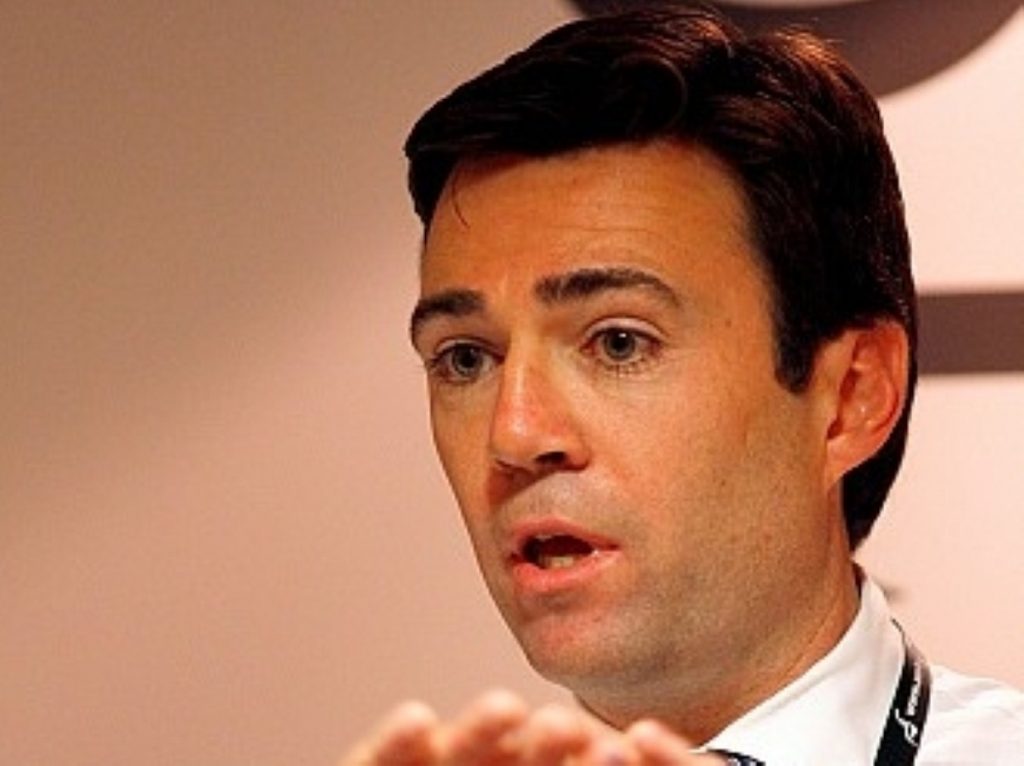Burnham and Cooper could turn the tide of the refugee debate
Yvette Cooper did it yesterday and Andy Burnham did it this morning. Finally, we have a new narrative on refugees fleeing Syria to the shores of Europe.
Perhaps Jeremy Corbyn's success with big ideas and political conviction is rubbing off on them. Or maybe it's the psychological effect of being in the final straight of a leadership election they have seemingly already lost. Or maybe the moral catastrophe of Britain's refusal to help in the worst refugee crisis since the Second World War has finally hit home to even the most deluded observer. Whatever it is, both candidates seem to have found some extra bravery this week.
Yesterday's speech by Cooper was easily the best she's ever given. But it was also the best I've ever heard from a British front bench politician on the subject of asylum. It's worth quoting the main passage in full. It is a startlingly brave thing for a mainstream British politician to say. As usual, because it is a modern British political speech, it is not allowed to have proper sentences or fluidity, but try to ignore that.
"It's time for us to do more. Yes, the politics are difficult. But not if we do this together. Time for the government to pull together an urgent national conference to work with communities and councils to see how many places we can offer to refugees from Syria and the Mediterranean. Time to ask cities, towns, communities how much they each can do to help. If every city took ten refugee families, if every London borough took ten families, if every county council took ten families, if Scotland, Wales and every English region played their part, then in a month we'd have nearly 10,000 more places for vulnerable refugees fleeing danger, seeking safety. Ten thousand instead of 200."


This morning, Burnham was backing that call, saying the "figure of 10,000 is a good place to start". He added: "This is a humanitarian crisis, not just a tedious inconvenience for UK holidaymakers, as the government might have us believe."
Burnham is a far worse politician than Cooper. His intervention lacks any of the moral outrage of her speech and is like an echo of a thought someone else had. But then, that's all he ever really does – try to aim echoes in whatever direction he thinks will most benefit him. But there it is – a mainstream politician running for the Labour leadership demanding a massive increase in the number of refugees the UK takes in. We haven't heard anything like this for some time.
It is hard to imagine an issue on which the Tory government has been so morally abysmal as the refugee crisis. We are shamed in the eyes of the world. Yesterday, a Washington Post headline ran saying:
"Britain takes in so few refugees from Syria they would fit on a subway train."
Germany expected to take 450,000 refugees last year. Now it intends to take 800,000. Britain is taking 1,000. It refuses to participate in any further assistance. Theresa May's only contribution has been to suggest that all migrants should be stopped from coming to the UK unless they have a job.
The Franco-German call for an asylum quota system at the EU level has been fiercely resisted by Cameron. France recently announced it would build a "humanitarian" camp for 1,500 in Calais to help the people living in fetid conditions there. The Home Office's only comment was that no funding would come from the UK. On every aspect of this issue, small or major, they exhibit only disinterest and emotional apathy. If it came from a human it would be interpreted as the behaviour of a psychopath.
But Cooper and now Burnham's intervention could conceivably change the tide. From prominent mainstream politicians, the demand pushes the narrative away from the 'are holidaymakers inconvenienced' narrative to one of British moral responsibility in the face of appalling need. The bravery of Cooper's intervention in particular was that it did not seek to make the case for refugee acceptance amid other admissions about anger over immigration or the usual caveats. It was an expression of outright moral insistence.
If the government has any decency at all, it is an insistence it will respond to. And if the media has any moral decency, it will be the start of a reversal in coverage, in which the demand for humanitarian action replaces the selfish insistence on England's sensitivities.









